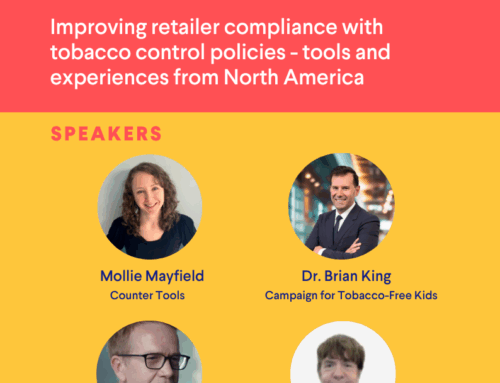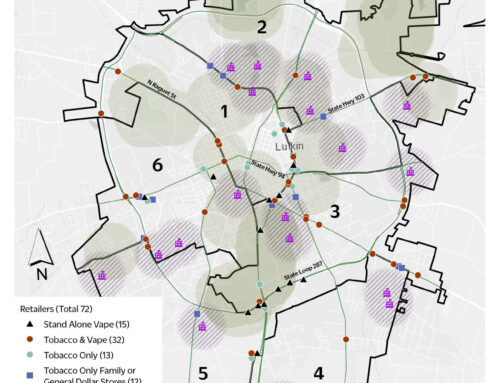The Mecklenburg County Public Health (North Carolina) Tobacco Prevention and Control Team partnered with Counter Tools to publish a Health Equity Impact Assessment report that examines the implications of tobacco retail policies in North Carolina, specifically Tobacco 21 and a tobacco retail permitting system. The report was developed through a health equity framework with a focus on illustrating if certain retail policies promote health equity or not.
The report concludes that implementing Tobacco 21 and a statewide tobacco retail permitting system is essential for preventing youth tobacco use and advancing health equity in North Carolina. Tobacco disproportionately affects marginalized communities, where aggressive marketing and retailer density contribute to higher tobacco use rates and worse health outcomes. Raising the minimum legal sales age to 21 has already been shown to decrease youth initiation rates in many places across the country, preventing lifelong addiction and tobacco-related diseases. A strong tobacco retail licensing system will provide essential oversight, ensuring retailers comply with regulations and reduce the prevalence of illegal sales. North Carolina can take a proactive approach to reducing health disparities, ensuring all residents, regardless of income, race, or background, have a fair chance at a healthier future.
Kim Bayha, Tobacco Prevention & Control Supervisor of the Office of Chronic Disease Policy & Prevention, spearheads Mecklenburg County Public Health’s tobacco point-of-sale policy work:
“Mecklenburg County Public Health collaborated with Counter Tools to assess our local retail tobacco environment and collect qualitative data to examine equity-centered impacts of Tobacco-21 and Tobacco Retail Permitting policies. Having access to digital tools and technical assistance from Counter Tools staff was invaluable. They provided training, developed a framework for the Health Equity Impact Assessment and led creation of a comprehensive Tobacco Retail Policy Impact Report and interactive dashboard. We can now use these online products to increase awareness about tobacco industry tactics in our local community and advocate for actions to reduce youth access to tobacco and address tobacco disparities. We could not have done this robust work without them.”
To learn more about this issue, view the executive summary and full report.





